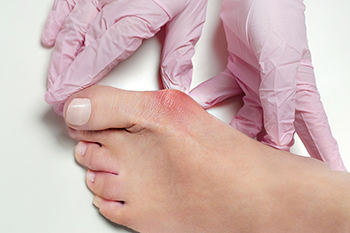
Bunions, those bony bumps that form at the base of the big toe, are a common foot ailment that can cause pain and discomfort. While many people associate bunions with wearing tight or ill-fitting shoes, the causes are often more complex than simply blaming your footwear choices. One of the primary contributors to bunions is genetics. If bunions run in your family, you may be genetically predisposed to developing them. In such cases, the way your foot bones are structured can make you more susceptible. Another significant factor is having improper foot biomechanics. If your feet roll inward excessively when you walk, termed overpronation, or if you have a flat foot arch, the increased stress on the joint at the base of the big toe can lead to bunion formation over time. While wearing tight shoes with a narrow toe box can exacerbate the problem, they generally are not the sole cause of bunions. If you have developed a bunion, it is strongly suggested that you speak with a podiatrist who can determine the cause and guide you toward the treatment method that is best for you.
If you are suffering from bunion pain, contact Howard Kimmel, DPM of Buckeye Foot Care. Our doctor can provide the care you need to keep you pain-free and on your feet.
What Is a Bunion?
Bunions are painful bony bumps that usually develop on the inside of the foot at the joint of the big toe. As the deformity increases over time, it may become painful to walk and wear shoes. Women are more likely to exacerbate existing bunions since they often wear tight, narrow shoes that shift their toes together. Bunion pain can be relieved by wearing wider shoes with enough room for the toes.
Causes
- Genetics – some people inherit feet that are more prone to bunion development
- Inflammatory Conditions - rheumatoid arthritis and polio may cause bunion development
Symptoms
- Redness and inflammation
- Pain and tenderness
- Callus or corns on the bump
- Restricted motion in the big toe
In order to diagnose your bunion, your podiatrist may ask about your medical history, symptoms, and general health. Your doctor might also order an x-ray to take a closer look at your feet. Nonsurgical treatment options include orthotics, padding, icing, changes in footwear, and medication. If nonsurgical treatments don’t alleviate your bunion pain, surgery may be necessary.
If you have any questions, please feel free to contact one of our offices located in Brook Park and Willoughby, OH . We offer the newest diagnostic and treatment technologies for all your foot care needs.
